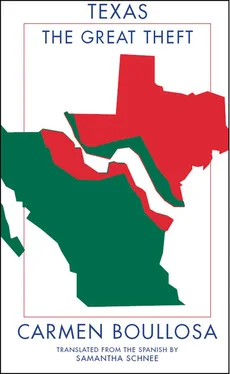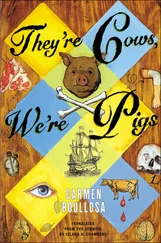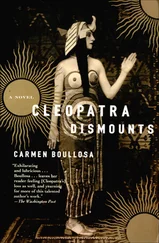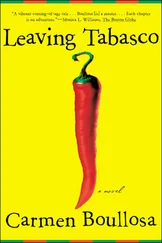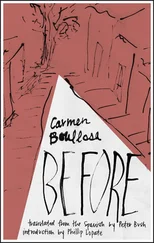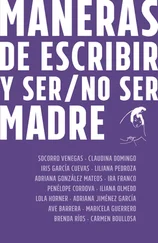On the other side of the river, Nepomuceno has entered Matasánchez with a small party of his armed men, not the thoughtful ones.
They’ve come to Matasánchez for an appointment with the mayor.
They go straight to the Hotel Ángeles del Río Bravo, the best one in the region. They’ll spend the night there. Nepomuceno says he doesn’t want to, because that’s where his wife is staying, and he’s still mad at her, but the truth is that he very much wants to, he misses her and knows that they’ll spend the night talking and hugging and kissing as only widow Isa can.
But first, something cold to drink at Café Central. He doesn’t have to wait for a table because they have reserved two for him. He sits at one, alone. His men sit on the benches in the plaza facing the café.
A regiment of soldiers in parade uniform marches in the plaza.
“What’s the parade for?” asks Nepomuceno.
Doctor Velafuente shrugs at a nearby table, “They’ve been here three days, Nepomuceno, as soon as the Angelus is about to start they march from one side of the plaza to the other. Who knows what they’re up to!”
Then the news arrives, like a fuse about to be set alight, they come shouting into the café:
“The gringos are trying to take Lázaro Rueda from the jailhouse.”
Nepomuceno feels a thick, viscous anger.
The church bells ring. Noon. The ringing freezes Nepomuceno’s soul. In a few minutes he’s supposed to be at the mayor’s, that’s what he’s here for, to speak with him; “Take it easy,” Nepomuceno says to himself, now more than ever he should be at one with his compatriots. He makes a decision: the mayor can wait, he should go to Bruneville to protect Lázaro. He makes a sign to his men, but they can’t see him, the parade is passing between them.
In the jailhouse in Bruneville, Ranger Neals orders the cell to be opened. In a half second he forces open the handcuff around Lázaro’s wrist,
“I was a locksmith before I became this unlucky wreck of a man.”
He hands Lázaro over in silence, while the masses outside shout insults. “Greaser! Greaser! Dark-skinned idiot! Coward! You damn Mexican!” No one calls him Lázaro. No one attempts the “R” in Rueda.
Among those who have crowded into the jailhouse are Miss Lace, Mr. Chaste (the pharmacist), Mr. Seed from the café, and Smith, who once played cards with Smiley: all faces he knows but are now unrecognizable.
They drag him out. He would have preferred to walk, but they don’t let him.
Blows rain down on him; anyone who can reach him lashes out, beating him. Nat, the messenger, takes the Lipans’ knife from his pocket and cuts off one of Lázaro’s fingers.
Mexicans lock themselves inside their homes.
Cherem goes up on his roof deck, armed with three shotguns. Alitas goes up to his.
The other Eagles do the same.
Carlos the Cuban, sets off a rocket from the roof of his guesthouse. It’s a sign for Nepomuceno. The Mexicans keep their fingers on their triggers. There’s no way to stop the crowd that has Lázaro, they’re on the other side of the jailhouse.
Sharp, the butcher, distributes six sharp knives to the crowd, “For the brave among you.”
They slice whatever they can reach off of Lázaro. There is screaming and laughter, celebrating the slaughter. They drag him to the Market Square.
From there a few of the Eagles can see what’s going on. It’s a solid mass of people, women and children. They hang Lázaro from the only tree with a chain.
“What should we do? Shoot into the crowd?”
The Texans start a fire at Lázaro’s feet. Shears, the carpenter — bullet still lodged in his chest, like a chrysalis, an incipient butterfly, as if it doesn’t bother either him or the bullets to live like that, as if his heart were a shell, resting in his body, his gimpy leg — joins them, his eyes bugging out of his head in excitement. The new sheriff, Mr. Wheel, the cart-driver, is already among them, celebrating.
“Nepomuceno should be here any minute.”
Another rocket.
It all goes so smoothly it looks like it’s been rehearsed. They begin to roast the victim. They didn’t use rope to hang him because they didn’t want to set fire to it. He hangs there, burning. The smell stirs up the crowd. Music. Dancing. Clapping.
Before the first rocket even goes up, Nepomuceno rises from the table.
The waiter is holding the glass of horchata he was about to serve, “Good and cold, just how you like it.”
The left flank of the regiment makes a half turn toward the café. They aim their guns at Nepomuceno. The right flank makes a half turn to the right, aiming at everyone on the benches, Nepomuceno’s armed men and one hapless passer-by.
The regiment of soldiers storms into the café. The mayor De la Cerva y Tana is right behind them, with the “emissaries” who visited Nepomuceno’s camp.
The room at the Ángeles del Río Bravo will remain vacant tonight. They take Nepomuceno and his men prisoner without firing a shot.
“We have orders from the capital, Nepomuceno.”
Without further ado, a detachment of well-armed men, all in high-ranking uniform, accompanies him to Puerto Bagdad. They embark immediately for Veracruz in a naval ship.
The widow Isa will spend the night without her husband, as well as the remaining (three) nights of her life. It’s the second time someone’s heart has broken with grief for Nepomuceno-not including Caroline, who couldn’t face life without Moonbeam. Isa will die because it was one thing to know he was alive, albeit with another woman (which was, truly, quite cruel), but something else altogether to learn they had buried him alive, what a horror, because from Veracruz they took him to Mexico City, straight to Tlatelolco Prison.
Pinta, a lonely mare, now free like a man, bucks anyone who tries to mount her.
She hasn’t lost her beauty, her bearing.
She won’t let anyone so much as touch her. No rider can even saddle her, she knows full well that she belongs to Nepomuceno.
There are those who’d say her story resembles the one Soro-Sarah made up about Cliquot, because only Nepomuceno will be able to ride her again … If we ever doubted who was more human of the two, the horseman or Pinta, there’s no longer any question: locked up like a dog in Tlatelolco, Nepomuceno doesn’t even know where he is, he’s lost everything, he’s a shell of his former self.
While they burn the body of this gentle, noble vaquero who sang and wrote songs and was easy-going and owned no land and had no interests other than caring for herds and pleasing his masters — he thinks:
“Ay, Lázaro, you won’t survive this! You’ll never ride again, or lasso a horse or a cow by the tail, you won’t go to the mountains, you won’t eat carne asada again, you won’t sing, you won’t play the violin. You’re going the way of the buffalo (and you were never that majestic, what a fearful creature to behold, when they stampeded the earth trembled). You’re no longer what you used to be, you’re nothing, but these are your last words:
“I want one thing to be absolutely clear: I’m no troublemaker. Leave me out of your fights, your complicated entanglements.
“And I mean it. I get what happened with Shears (I admit I was wrong to get drunk) and now this — my wrist in a handcuff, how could something so unlucky happen to me?
“I didn’t come into the world looking for trouble, I went to the jailhouse because Nepomuceno asked me to fetch Ranger Neals. But Neals had flown the coop, the coward.
“What I remember is that Urritia called me over to the cell, I went to him, he spoke to me softly; I’m old and I don’t hear so well, so I went a little closer, and he grabbed my wrist … and chained me to the bars.
Читать дальше
